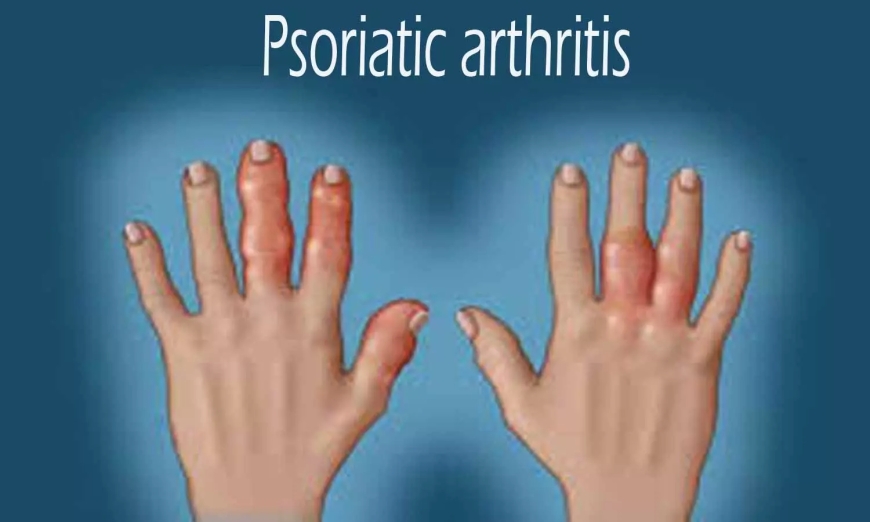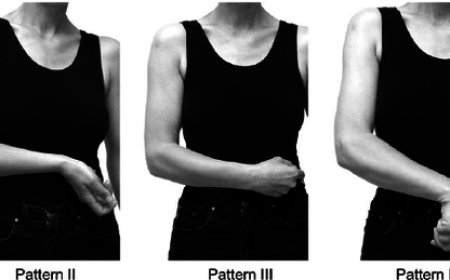Arthritis, Psoriatic

Introduction:
Imagine having an itch inside your joints that just won't go away! That's what Psoriatic Arthritis feels like. Today, we will learn about this special type of Arthritis that affects some people in India. We will explore its signs and symptoms, what it is, how it is classified, what causes it, the risk factors, different types, diagnostic tests, treatments, and some ways to prevent it. Get ready for a journey into the world of Psoriatic Arthritis!
Signs and Symptoms:
Psoriatic Arthritis can be a tricky guest, causing different problems in the joints and skin. Some common signs are:
- Swollen, red, and painful joints, like feeling a pinch inside your knees or fingers.
- Itchy, scaly patches on the skin, like having tiny bumpy spots that won't leave you alone.
- Stiffness in the morning, feeling like you can't move your body freely.
What Is Psoriatic Arthritis? :
Psoriatic Arthritis is like a double-trouble condition where two things happen together. It's a mix of Arthritis, which affects the joints, and Psoriasis, which causes skin problems like itchy patches. So, it's like having two guests at a party causing some chaos!
How Is Psoriatic Arthritis Classified? :
Doctors classify Psoriatic Arthritis based on how it affects the joints and the skin. Sometimes, it can be mild and not cause too much trouble, while other times, it can be more severe and need special attention.
Causes and Triggers:
The exact reason why Psoriatic Arthritis comes to visit is still a bit of a mystery. But sometimes, it likes to appear when the body's defense system (immune system) gets a little confused and attacks the joints and the skin. It's like when our body thinks the good guys are the bad guys and starts a fight inside.
Risk Factors with Examples:
Some things make Psoriatic Arthritis more likely to show up, just like some kids are more likely to get a cold when it's cold outside. Some risk factors include:
- Family History: If someone in the family has Psoriatic Arthritis or Psoriasis, others might have a higher chance of getting it too.
- Age: Sometimes, it likes to visit older kids or grown-ups, but it can surprise younger ones too.
- Stress: Just like when you have exams and feel stressed, it can make Psoriatic Arthritis more likely to appear.
Types of Psoriatic Arthritis with Detailing for Each Type:
- Symmetric Psoriatic Arthritis: It affects the same joints on both sides of the body, like both knees or both wrists.
- Asymmetric Psoriatic Arthritis: This one doesn't play fair, affecting different joints on each side, like only the left ankle and right elbow.
- Enthesitis: It causes pain where the muscles and tendons attach to the bones, making it hard to move.
- Distal Interphalangeal Predominant (DIP): This type likes to target the small joints in the fingers and toes, making them sore and swollen.
Diagnostic Tests and Treatments:
To understand if Psoriatic Arthritis is visiting, doctors use special tests to look inside the body. Some of these tests include:
- Physical Examination: The doctor will ask you questions, check your joints, and look at your skin.
- Blood Tests: They take a tiny amount of blood to see if there are any signs of Psoriatic Arthritis.
- X-rays: This is like taking pictures of your bones to see if they look okay or if Psoriatic Arthritis is causing trouble.
- Skin Biopsy: If your skin has itchy patches, the doctor might take a tiny sample to understand if it's Psoriasis.
Complications of Psoriatic Arthritis and Prevention Techniques:
If Psoriatic Arthritis is not taken care of, it can make the joints hurt a lot, like an annoying itch that never goes away. To prevent it from causing too much trouble, doctors might give special medicines, exercises, and ways to keep the skin healthy.
Psoriatic Arthritis is like a two-in-one troublemaker that affects both the joints and the skin. But we can be superheroes by taking care of our bodies, eating healthy food, and visiting our doctors when we don't feel right. Remember, our bodies are our best friends, and we must listen to them and give them lots of love and care!
What's Your Reaction?
 Like
0
Like
0
 Dislike
0
Dislike
0
 Love
0
Love
0
 Funny
0
Funny
0
 Angry
0
Angry
0
 Sad
0
Sad
0
 Wow
0
Wow
0







































































